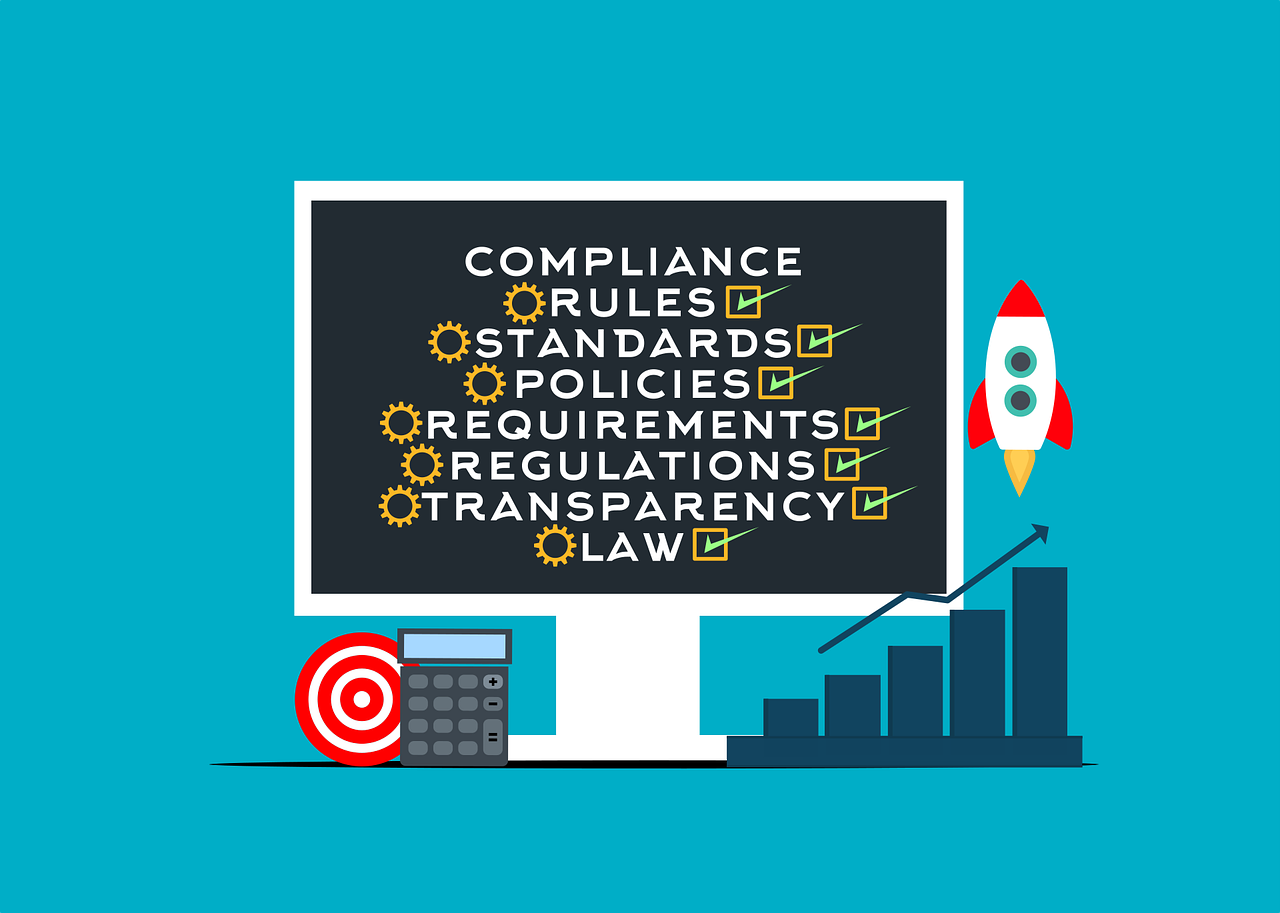Utah Commercial Real Estate and Digital Signage: Legal Compliance. Looking to take your commercial real estate venture to the next level by incorporating digital signage? In Utah, it’s important to navigate the legal landscape to ensure you’re in compliance with all regulations. From zoning requirements to content restrictions, understanding the legal implications of digital signage in commercial real estate is crucial. With the expertise of commercial real estate lawyer Jeremy Eveland, you can ensure that your signage not only captivates your audience but also meets all legal requirements. Don’t let legal complexities hold you back – contact Jeremy Eveland for a consultation and take your commercial real estate endeavors to new heights.
Understanding Utah’s Commercial Real Estate Laws
Utah’s commercial real estate laws play a crucial role in regulating and ensuring fair practices in the state’s real estate industry. As a property owner or tenant, it is essential to be familiar with these laws to navigate the complexities of commercial real estate transactions effectively. By understanding key regulations, important considerations, and common legal issues, you can ensure compliance and protect your rights and interests.
Key regulations for commercial real estate in Utah
Utah has several key regulations in place to govern commercial real estate. These regulations cover a range of aspects, including property ownership, leasing, zoning, and more. One critical regulation is the Utah Code Title 57, which outlines the various rules and requirements for commercial real estate transactions. Additionally, the Utah State Courts provide an extensive body of case law that further clarifies the legal framework for commercial real estate in the state.
Important considerations for property owners and tenants
For property owners, it is crucial to have a comprehensive understanding of their rights and responsibilities. This includes understanding lease agreements, property maintenance obligations, and compliance with building codes and regulations. On the other hand, tenants need to be aware of their rights regarding leasing terms, rent payment, and the use of the property. Both parties must also consider potential liabilities, insurance requirements, and any necessary permits or licenses.
Common legal issues in commercial real estate transactions
Commercial real estate transactions can give rise to various legal issues that need to be carefully addressed. Disputes over lease agreements, zoning violations, property defects, or environmental concerns are just a few examples. It is essential to work with a knowledgeable commercial real estate lawyer to prevent or resolve these issues effectively. They can provide guidance, negotiate on your behalf, and represent you in legal disputes, ensuring your interests are protected throughout the process.
Digital Signage in Commercial Real Estate
Digital signage has become increasingly popular in commercial real estate, revolutionizing how businesses communicate with customers and enhance their marketing efforts. From vibrant displays in retail stores to interactive information boards in corporate buildings, digital signage offers numerous benefits. Whether you are a property owner or a tenant, understanding how to utilize digital signage effectively can significantly enhance your business operations and attract customers.
Exploring the use of digital signage in commercial properties
Digital signage refers to the use of electronic displays, such as LCD or LED screens, to convey information, advertisements, or other content. In commercial properties, digital signage can be used for various purposes, including advertising, brand promotion, wayfinding, and displaying important announcements or news updates. By leveraging this technology, businesses can engage customers, create captivating visual experiences, and increase brand awareness.
Benefits of digital signage for businesses
Digital signage offers several advantages for businesses operating in commercial real estate. Firstly, it allows for dynamic and customizable content, enabling businesses to adapt their messages quickly and tailor them to specific target audiences. This flexibility is valuable in promoting promotions, new product launches, or time-sensitive information. Digital signage also attracts attention and captures customer interest more effectively than traditional static signage, increasing the likelihood of customer engagement and sales. Moreover, businesses can remotely manage and update digital signage screens, saving time and resources compared to manually replacing and updating static signs.
Types of digital signage technologies
There are various digital signage technologies available, each with its unique features and applications. LCD screens are commonly used for smaller displays, such as corporate lobby screens or menus in restaurants. They offer excellent image quality and are suitable for indoor environments. LED displays, on the other hand, are often used for larger outdoor signage or high-impact advertising displays. These displays are brighter, more durable, and capable of displaying content in varying weather conditions. Other digital signage technologies include OLED displays, interactive touchscreens, projection mapping, and video walls. Selecting the most appropriate technology for your specific needs depends on factors such as the location, content requirements, and budget.

Legal Compliance for Digital Signage in Utah
While digital signage presents numerous opportunities for businesses in commercial real estate, it is essential to navigate the legal landscape to ensure compliance with applicable regulations in Utah. Understanding the regulatory framework, compliance with building codes, and licensing requirements are critical to avoid legal issues and maintain a strong business reputation.
Understanding the regulatory framework for digital signage in Utah
Digital signage in Utah is subject to various regulations, primarily governed by local building codes and zoning ordinances. It is essential to consult the specific municipal regulations governing your property location to ensure compliance. Additionally, the Federal Communications Commission (FCC) regulates certain aspects of digital signage, such as radio frequency emissions. Understanding and adhering to these regulations is crucial to avoid penalties and ensure smooth operation of your digital signage.
Compliance with local building codes and regulations
Installing digital signage in commercial properties requires compliance with local building codes and regulations in Utah. These codes and regulations specify requirements related to electrical wiring, structural support, display size limitations, and other safety considerations. It is crucial to work with contractors and professionals who are experienced in digital signage installations and familiar with local building codes to ensure compliance and avoid potential legal issues.
Licensing requirements for using digital signage in commercial real estate
In some cases, obtaining licenses or permits may be necessary for using digital signage in commercial real estate. These requirements can vary depending on the location, size of the display, and specific content being displayed. Prior to installing digital signage, it is essential to research and understand these licensing requirements and ensure that all necessary permits are obtained. Failing to do so may result in fines, penalties, or even forced removal of the signage.
Navigating Zoning and Land Use Restrictions
Zoning laws play a critical role in determining how properties in Utah can be used, including the installation of digital signage. Understanding the impact of zoning laws, the permitting process, and addressing potential concerns or objections from the neighborhood are essential to avoid legal complications and ensure a successful digital signage installation.
Understanding how zoning laws impact the use of digital signage
Zoning laws categorize different areas for specific land uses, such as residential, commercial, or industrial. These laws often dictate the types of signage permitted in different zones and may impose restrictions on the size, height, and design of digital signage. It is crucial to familiarize yourself with the zoning regulations for your property and ensure that digital signage installations comply with those requirements.
Permitting process for installing digital signage in commercial properties
Before installing digital signage, property owners or tenants must obtain the necessary permits from the local zoning or building department. The permitting process typically involves submitting detailed plans and specifications of the signage, paying applicable fees, and obtaining approval from relevant authorities. Working with a commercial real estate lawyer who is knowledgeable about the permitting process can help streamline the application process and ensure compliance with all requirements.
Addressing potential neighborhood concerns or objections
When installing digital signage, it is essential to consider potential concerns or objections from the neighborhood or adjacent properties. These concerns may include light pollution, aesthetics, noise, or potential impacts on property values. Open communication and addressing these concerns proactively can help mitigate potential legal disputes and maintain positive relationships with neighbors. Engaging with the community, conducting impact studies, or implementing additional measures to minimize any negative effects can demonstrate a commitment to being a responsible digital signage user.
Tenant Landlord Agreements and Leases
Digital signage can have specific implications for both landlords and tenants in commercial real estate. Understanding the legal considerations, rights, and responsibilities associated with incorporating digital signage into lease agreements is crucial for both parties involved.
Legal considerations for landlords when incorporating digital signage in lease agreements
Landlords should carefully consider the inclusion of digital signage provisions in lease agreements. These provisions can address factors such as the permitted locations for signage, specifications regarding the type and size of signage, maintenance and repair responsibilities, and any restrictions on the content or duration of displays. Clear and detailed lease provisions can help avoid disputes and ensure compliance with both landlord and tenant obligations.
Rights and responsibilities of tenants in using digital signage
Tenants utilizing digital signage need to be aware of their rights and responsibilities under the lease agreement. This includes adhering to the provisions related to signage installation, maintenance, and removal, as well as obtaining necessary permits and licenses. Tenants should also consider the impact of digital signage on the property and take appropriate measures to mitigate any potential damages or concerns.
Dealing with disputes related to digital signage usage
Disputes arising from digital signage usage can occur between landlords and tenants. Clear lease provisions and open communication between the parties can prevent misunderstandings and minimize conflicts. If disputes arise, engaging in alternative dispute resolution processes, such as mediation or arbitration, can often help achieve a mutually satisfactory resolution. In more complex cases, seeking legal counsel is advisable to protect rights and navigate potential litigation.
Intellectual Property and Digital Signage
Protecting intellectual property rights in digital signage content is essential to prevent unauthorized use or infringement. Understanding copyright laws, licensing agreements, and implementing safeguards can help safeguard the rights of content creators and users.
Protecting intellectual property rights in digital signage content
Digital signage often includes various forms of content, such as images, videos, logos, or trademarks. It is crucial to ensure that the content being displayed does not infringe upon the intellectual property rights of others. Properly acquiring licenses, obtaining the necessary permissions, or creating original content can help protect against copyright infringement claims.
Dealing with copyright infringement issues
If a copyright infringement claim arises regarding digital signage content, it is essential to respond promptly and appropriately. This may involve conducting an investigation, verifying the validity of the claim, and taking necessary actions to comply with copyright laws. Consultation with an intellectual property lawyer can help navigate the specific legal requirements and potential defenses in such cases.
Licensing agreements for third-party digital signage content
When utilizing third-party content for digital signage, it is important to establish legal agreements that clarify the terms of use, ownership, and any associated licensing fees. These agreements can outline the rights and responsibilities of both parties involved and help protect against potential legal disputes. Working with legal professionals experienced in intellectual property law can ensure that licensing agreements adequately protect your interests.

Ensuring ADA Compliance
Digital signage accessibility is a crucial consideration to ensure equal access for all individuals, including those with disabilities. Understanding the requirements of the Americans with Disabilities Act (ADA), designing accessible content, and implementing inclusive interfaces are essential for compliance.
Understanding ADA requirements for digital signage accessibility
The ADA sets forth requirements for businesses to ensure equal access to individuals with disabilities, including accessible digital signage. Compliance with the ADA requires considering factors such as screen readability, font size, captions, audio descriptions, and tactile features for individuals with visual, hearing, or cognitive impairments. It is important to consult the ADA guidelines and work with professionals experienced in accessible design principles to ensure compliance.
Designing accessible digital signage content and interfaces
Designing digital signage content and interfaces with accessibility in mind is crucial to ensure compliance with ADA requirements. This includes using readable fonts, high contrast color combinations, clear captions, and providing alternative formats for individuals with visual impairments. Interactive interfaces should also consider intuitive navigation, consistent feedback, and compatibility with assistive technologies. By prioritizing accessibility during the design process, businesses can create inclusive experiences for all individuals.
Ensuring equal access for individuals with disabilities
To maintain compliance with ADA requirements, it is important to regularly assess the accessibility of digital signage and address any issues promptly. This may involve conducting accessibility audits, soliciting feedback from individuals with disabilities, and implementing necessary improvements to ensure equal access. By actively striving for inclusivity, businesses can enhance their reputation, reach a broader audience, and avoid potential legal consequences.
Data Privacy and Security
With the increasing use of digital signage, it is imperative to protect customer data and personal information from unauthorized access or breaches. Complying with privacy laws, implementing secure networks, and maintaining appropriate data security measures are essential to protect sensitive information.
Protecting customer data and personal information
Businesses using digital signage collect and process customer data, such as demographics, preferences, or user-generated content. It is critical to implement appropriate data protection measures, including secure data storage, encryption, and access controls. Adhering to privacy laws, such as the Utah Data Breach Notification Act, can help protect against data breaches and maintain customer trust.
Complying with privacy laws and regulations
Utah has specific privacy laws and regulations that businesses must comply with when collecting and using customer information. The Utah Consumer Privacy Act (UCPA) regulates the collection, use, and sale of personal information and imposes certain obligations on businesses. Understanding and adhering to these privacy laws is crucial to avoid legal issues and maintain compliance.
Implementing secure digital signage networks
Cybersecurity risks associated with digital signage networks can expose businesses to data breaches, unauthorized access, or malicious attacks. Implementing secure networks, using encryption protocols, regularly updating software and firmware, and restricting network access can help mitigate these risks. Collaborating with cybersecurity experts and regularly monitoring the network for potential vulnerabilities is crucial to maintain data privacy and security.

Advertising and Marketing Regulations
Advertising through digital signage in commercial real estate is subject to various laws and regulations. Complying with these regulations, adhering to ethical guidelines, and ensuring truthful and non-deceptive advertising practices are vital to maintain credibility and prevent legal complications.
Compliance with advertising laws and regulations
Digital signage advertising is subject to state and federal laws, including consumer protection laws, the Federal Trade Commission Act, the Utah Consumer Sales Practices Act, and other relevant legislation. These laws regulate various aspects, such as false or misleading advertising, unfair business practices, disclosure requirements, and pricing accuracy. It is essential to understand these laws and ensure compliance in all advertising efforts.
Ethical guidelines for digital signage advertising
In addition to legal requirements, businesses should also adhere to ethical guidelines for advertising through digital signage. These guidelines include principles of honesty, accuracy, transparency, and respecting consumer privacy. Being transparent with pricing, promoting products or services truthfully, and avoiding deceptive practices are essential for building and maintaining a positive brand image.
Ensuring truthful and non-deceptive advertising practices
To avoid legal consequences and protect your business reputation, it is important to ensure that all advertising practices involving digital signage are truthful and non-deceptive. This includes accurately representing the features, benefits, and pricing of products or services, avoiding false or exaggerated claims, and delivering on promises made in advertisements. Regularly reviewing advertising materials and campaigns to ensure compliance is crucial.
Enforcement and Consequences of Non-Compliance
Non-compliance with commercial real estate and digital signage regulations can have serious consequences for businesses. Understanding the potential enforcement actions, penalties, and seeking legal counsel when faced with compliance issues is vital to protect your rights and interests.
Consequences of non-compliance with commercial real estate and digital signage regulations
Non-compliance with commercial real estate and digital signage regulations can result in various consequences for businesses. These consequences may include fines, revocation of licenses or permits, injunctions, property damage, lawsuits, reputational harm, and other legal actions. It is crucial to understand the potential risks and take proactive measures to ensure compliance.
Penalties and legal actions for violations
Violating commercial real estate and digital signage regulations can lead to the imposition of penalties or legal actions. The severity of the penalties depends on the specific violation and can range from monetary fines to imprisonment, particularly in cases involving serious offenses. Additionally, affected parties may initiate civil litigation seeking damages or injunctive relief for non-compliance. To mitigate potential consequences, businesses should promptly address any compliance issues and seek legal counsel when necessary.
Seeking legal counsel for resolving compliance issues
When faced with compliance issues related to commercial real estate or digital signage, seeking legal counsel is essential. An experienced commercial real estate lawyer can provide guidance, assess the situation, and help you navigate the complex legal landscape. They can assist in resolving compliance issues, defending against legal actions or penalties, and protecting your rights and interests throughout the process.
In conclusion, understanding Utah’s commercial real estate laws and ensuring compliance with digital signage regulations are crucial for businesses operating in the state. By familiarizing oneself with the key regulations, addressing legal considerations, and implementing appropriate safeguards, businesses can navigate the complexities of commercial real estate and leverage the benefits of digital signage while safeguarding their interests. Seeking legal counsel is highly advisable to ensure comprehensive guidance and protection throughout the process.


